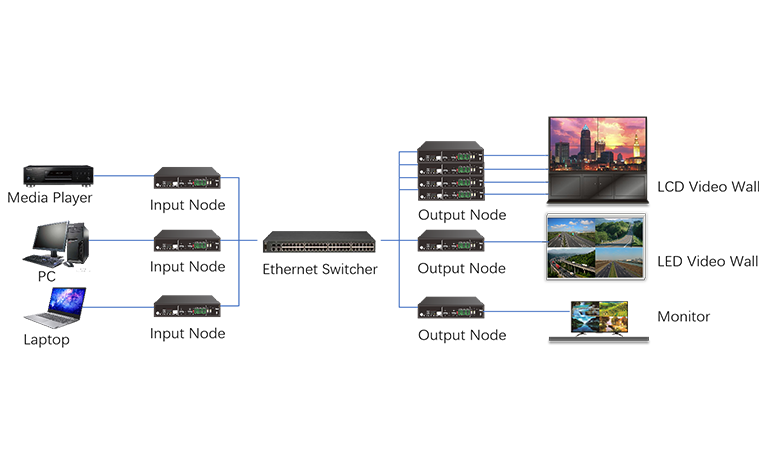
Decentralized Network Structure
01
EX Series distributed processors adopt decentralized network structure, and can operate normally without central server, so as to build a real distributed system.

High Quality Transmission At Low Code Rate
02
EX Series distributed processors support h.264/h.265 coding. Combined with unique optimized algorithms, they can transmit high-quality images at low coe rate, so as to achieve excellent video output while reducing the bandwidth occupation.
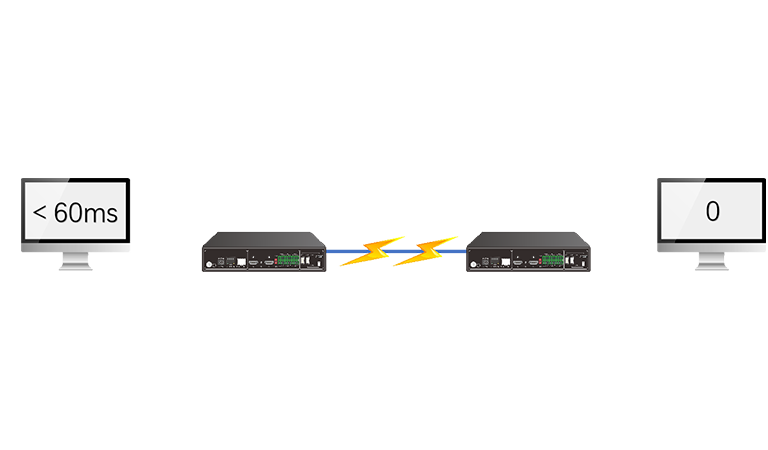
Low Latency Video Output
03
EX Series distributed processor supports low latency transmission and processing, and the average latency between output image and input image is less than 60ms, meeting the requirements of high standard display.

Multi Window Splicing Display
04
EX Series distributed processor supports video splicing function, which can complete the splicing display of LED / LCD / DLP video wall without additional equipment. Each processor node can support multiple windows output, and the windows can roam across nodes arbitrarily on the screen completed by multiple devices.

Accurate Multi Device Synchronous Display
05
EX Series distributed processors adopt the multi machine synchronization technology of Multi-Sync, which can make multiple processors in the synchronous state and ensure that the images spliced by multiple output nodes are not torn.

OSD And Background Management
06
EX Series distributed processor can store pictures in the device and call them as background at any time; In addition, it also supports editable caption overlay, and users can insert text in the output image by themselves. Users can keep different screen layout, text, background and other parameters into different scenes, and one click switching can be realized in different scenes.
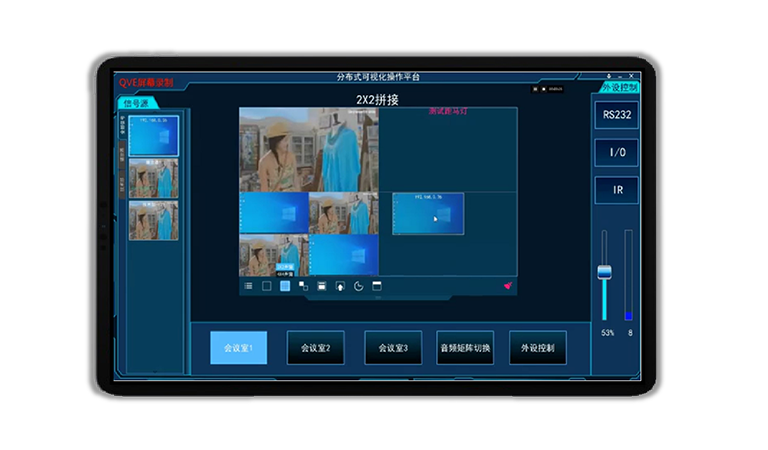
Visual Remote Control
07
Users can control the whole distributed system through PC, tablet, mobile phone and other devices. Through the client app., users can see the screen content of input nodes and output nodes in real time and obtain the WYSIWYG operation experience. The screen of visual operation can be customized through the client.
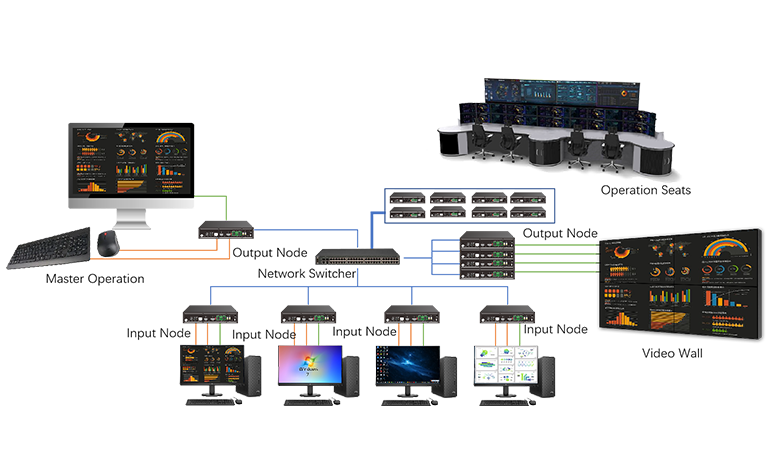
IP KVM & Seat Coordination Management
08
The video, mouse and keyboard control of multiple PCs can be connected to the ex system through the input node. A single output node can easily control all PCs of each input node to realize the interconnection and coordination of seats.

Cross-screen Mouse Operation
09
With one mouse, you can slide freely on multiple displays in the seat, and you can quickly complete the operation of multiple input node signals without switching.
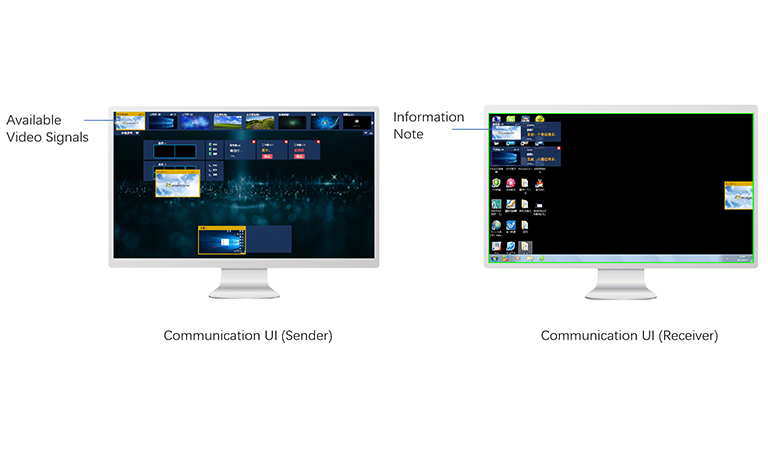
Seat Audio And Video Coordination
10
The user can quickly enter the communication UI by dragging the thumbnail of the video to the receiver through the keyboard, and the user can quickly enter the interface by dragging the thumbnail image. In addition, the two sides can also establish audio communication and real-time dialogue.
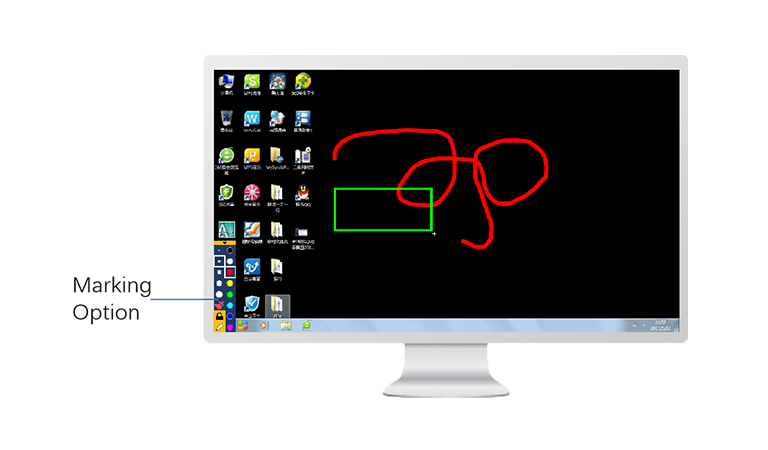
Signal Handwriting Marking
11
The user can mark on the input signal, including optional color handwriting mark, rectangular mark, etc. the marked content can be displayed on the main stream, auxiliary stream and echo.
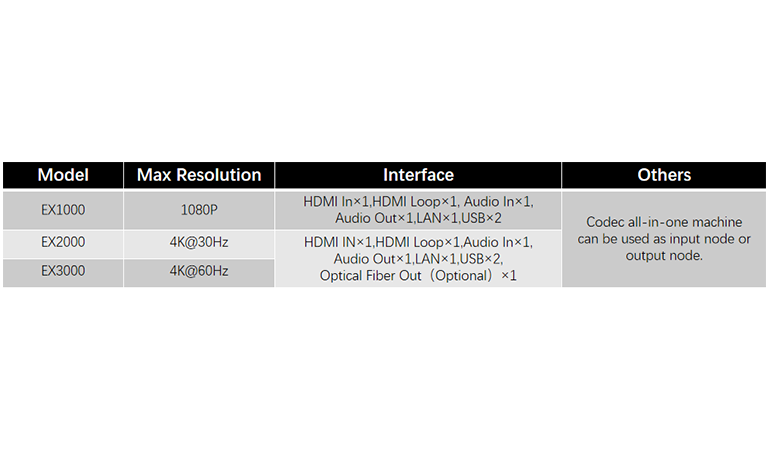
Model Specification Difference
12.png)
Application Scenario
13| File Name | Date | Download |
|---|



